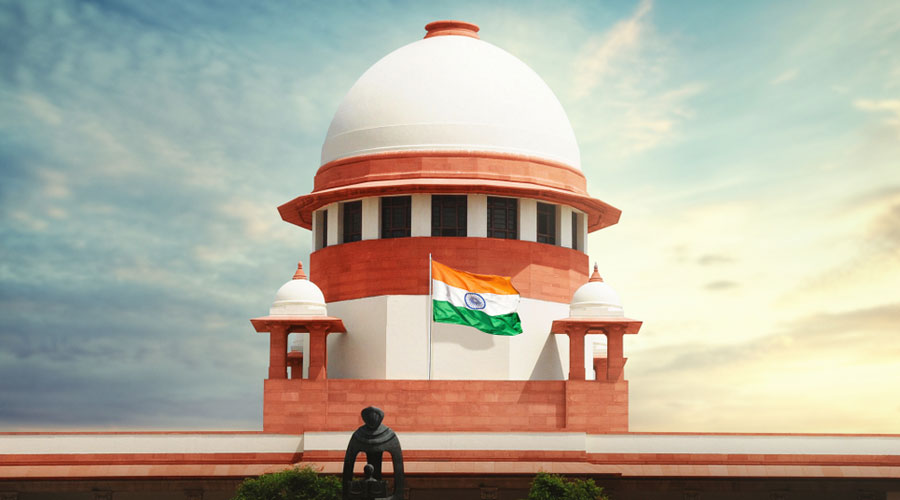The Supreme Court has sought the response of the Centre and various ministries on a fresh petition filed by the Mumbai-based Association of Medical Consultants challenging the NDA government’s decision to permit practitioners of alternative medicines to perform surgeries and prescribe allopathic medicines.
Alternative systems of medicines are ayurveda, yoga and naturopathy, unani, siddha and homeopathy (collectively called Ayush).
Besides the ministry of Ayush, the petitioner has made the ministry of health and family welfare, the Central Council of Indian Medicine (CCIM) and the ministry of law and justice respondents in the case.
While issuing notices on the plea of advocate Sunil Fernandes, a bench of Justices Hemant Gupta and Sudhanshu Dhulia tagged the matter with an earlier petition filed by the Indian Medical Association (IMA).
On March 15, 2021, the apex court had issued notices to the Centre on the same grievance raised by the IMA.
According to Fernandes, the Centre’s decision violates Articles 14 (right to equality), 19 (freedom of speech and occupation) and 21 (protection of life and personal liberty) of the Constitution “…. so far as it enables the Practitioners of Indian System of Medicine / Homeopathy / Alternative Medicines to practice Allopathy/ Modern Medicine and perform Surgeries”.
“The nature of injury caused to or likely to be caused to the public is grave and bearing serious repercussion on Public Health, Medical Infrastructure and Right to Life, including the Right to Correct and Prompt Medical Aid, as enshrined under Article 21 of Constitution of India,” Fernandes added.
The AMC has sought quashing/setting aside/modification of:
⚫ Section 34 (rights of persons to practice) of the National Commission for Indian System of Medicine Act, 2020
⚫ Section 34 (rights of persons to practice) of the National Commission for Homoeopathy Act, 2020
⚫ Regulation 10(9) of the Indian Medicine Central Council (Post Graduate ayurveda Education) Regulations, 2016, as amended by the Indian Medicine Central Council (Post Graduate ayurveda Education) Amendment Regulations, 2020, thereby, allowing PG scholars of shalya and shalakya to perform 58 surgical procedures after completion of post-graduation in ayurveda.
According to the petitioner, in a purported attempt to integrate different kinds of alternative medicine systems with allopathy, two central legislations — the National Commission for Indian System of Medicine Act, 2020 and the National Commission for Homoeopathy Act, 2020 — were enacted on September 20, 2020, allowing practitioners of Indian system of medicine (including homoeopathy) to hold office in the capacity of a surgeon and practise modern medicine.
It was submitted that on November 20, 2020 the CCIM, a statutory body under the Ayush ministry, by way of Indian Medicine Central Council (Post Graduate ayurveda Education) Amendment Regulations, 2020, authorised PG practitioners in shalya and shalakya streams of ayurveda to be trained to perform 39 general surgery procedures and 19 other procedures such as excisions of benign tumours, and nasal and cataract surgeries.
As a result of the amendment, the PG scholars of the shalya and shalakya streams were authorised to independently perform the surgeries or procedures after the completion of their degree.
The ostensible objective behind passing the impugned legislations was to fill up the shortage of doctors and fortify the healthcare system in India.
“However, the impugned legislations fail to keep a check on an age-old-problem of medical malpractices by ‘quacks’ offering modern medical treatment, without any adequate qualification or experience in modern medicine,” the petitioner submitted.











